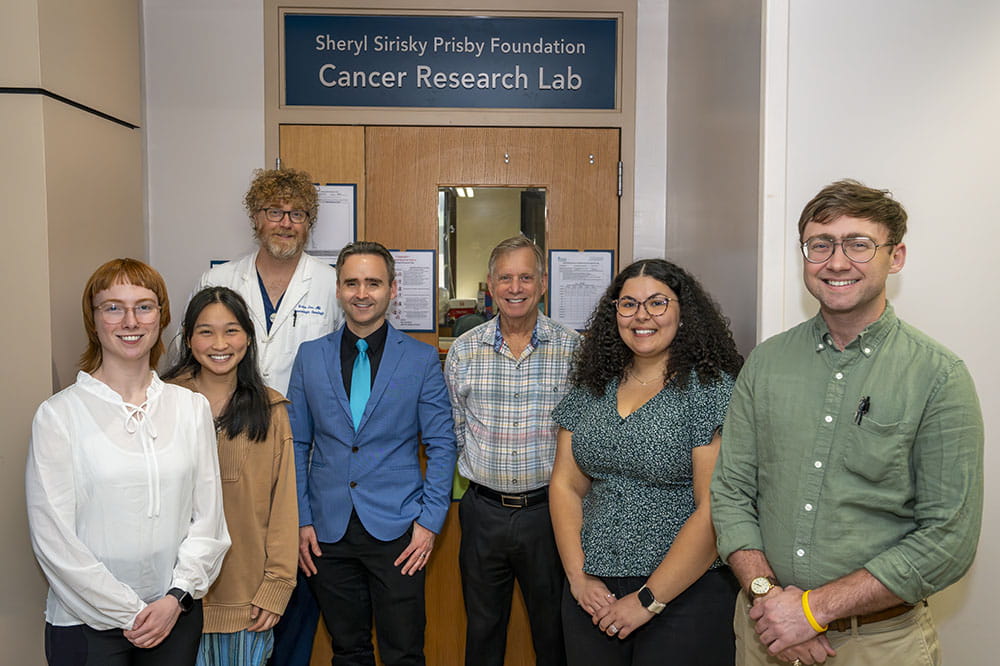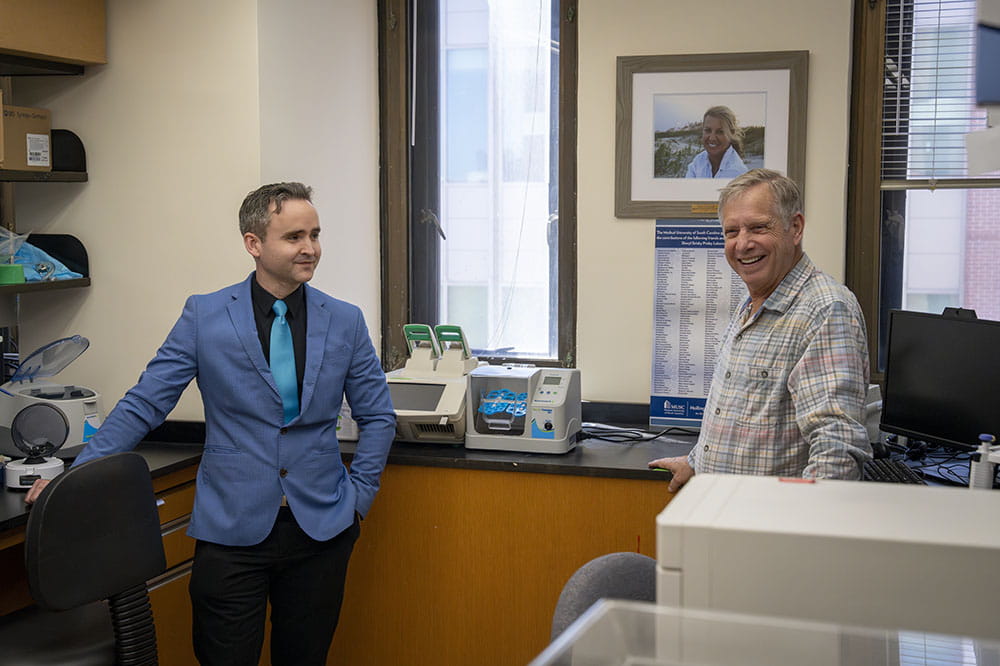Clinical trials pave the way for new cancer treatments. But they don't arise out of thin air. A new clinical trial for ovarian cancer patients at MUSC Hollings Cancer Center is the result of a years-long collaborative effort by a basic scientist, physicians and a dedicated donor.
"It's a true bench-to-bedside process," said Brian Orr, M.D., a gynecologic oncologist.
Orr is the physician lead on the new trial, which is built on research from the lab of Joe Delaney, Ph.D., and funded in part through donations raised by Matt Prisby, whose wife, Sheryl Sirisky Prisby, died of cervical cancer in 2014.
The new trial, the second to arise out of this collaboration, is for patients with ovarian cancer that has returned.
A key feature of the trial, called AUTOMAIN, is that it will test drugs already on the market for other diseases. Repurposing existing drugs means that investigators already know a lot about the drug's side effects, typical dosage and how it interacts with some other medications.
In addition, the drugs in this trial have been around for so long that their patents have expired. That can be a double-edged sword: without patents, the drugs are more affordable, but pharmaceutical companies generally aren't interested in promoting new uses for them.
"This is an absolutely essential type of trial to perform with cancer patients, as many more drugs are expiring in patent protection each year," Delaney said.

The research leading up to this trial goes back to 2013. Delaney's lab found that nearly all ovarian tumors have chromosomal abnormalities that render them vulnerable to anti-autophagy drugs. Autophagy is a cellular recycling process; in normal cells, it recycles damaged or abnormal cell parts and can prevent the early development of cancer. In advanced cancer, though, that recycling process ends up feeding the tumor.
He explained his lab's research timeline: "Starting from computers to see if the hypothesis makes sense, going into cells, trying out 32 different autophagy drugs to see if any of them did anything, finally narrowing it down to the five that might actually be safe for patients and then trying that out in mice. That was all through about 2016," he said. "And then planning ahead and trying to get them safe for use in the presence of chemotherapy was another four years of experiments."
The team then relied on biostatisticians and other staff members to write a protocol for the trial that outlines safety measures, oversight, what will be measured and how it will be measured. That protocol got the green light from the Food and Drug Administration (FDA), meaning the trial will open to patients this fall. Up to 38 patients are expected to enroll. Orr said that the clinical team sees between six and 10 patients every month who could potentially be eligible for the trial.
Prisby, who has raised more than $100,000 for gynecologic cancer research, noted that this trial, by using repurposed drugs, is significantly less costly than drug development from scratch.
"Back in 2015, it was really hard to imagine that with so few dollars – in my mind – that we could do anything. It's a marvel to me. When you see research grants of millions and millions of dollars, and we've accomplished successful lab work – and now into trials," he said.
In addition to Prisby's donors, the trial is being funded by Hollings, which sees great potential in the work.

This is the second clinical trial to come from this research. The first, COAST, launched in 2022 with Michael Lilly, M.D., now retired, as the clinical lead. In the COAST trial, 14 patients with different cancers, including two ovarian cancer patients, are using autophagy-inhibiting drugs. Many have had stable disease for months, Delaney said. The COAST study is still underway, so final results won't be known for a couple of years.
As the AUTOMAIN trial begins, Delaney is hopeful that it can make a difference for patients who currently have few options.
"These drugs are particularly effective at preventing chemotherapy-resistant cell populations from proliferating, in pre-clinical models," he said. "We are optimistic that given the mechanism of action and the first-recurrence status of these patients, we have a strong likelihood to improve the survival of the women who enroll in this trial compared with current standard of care."






